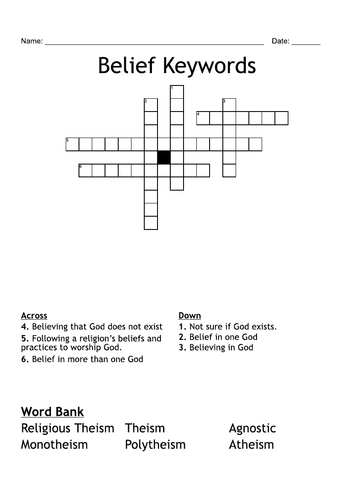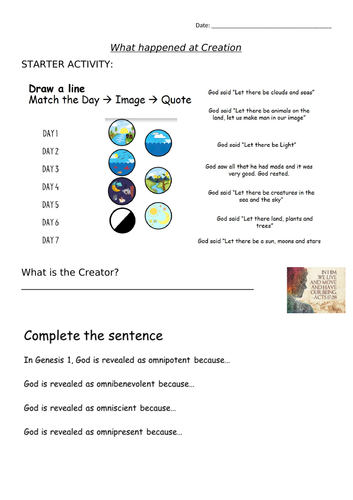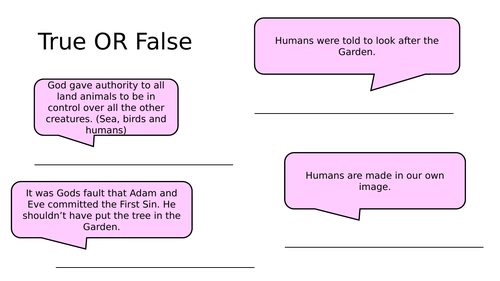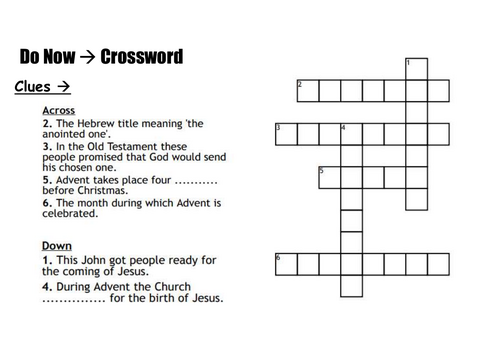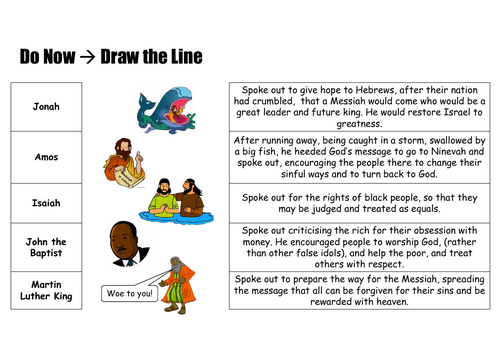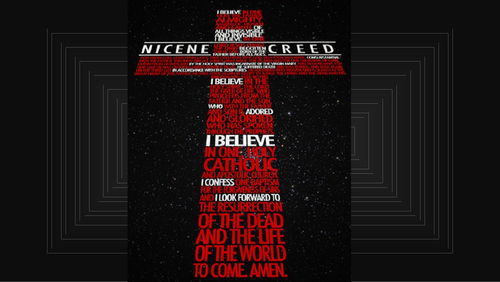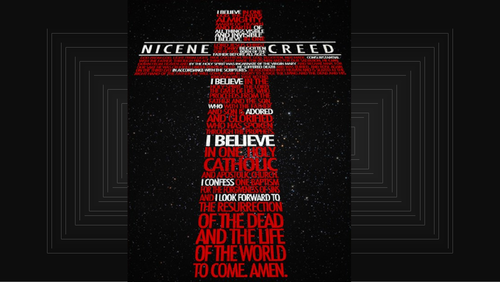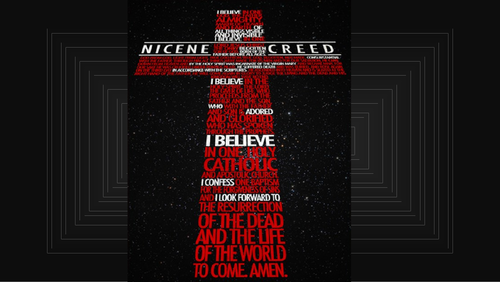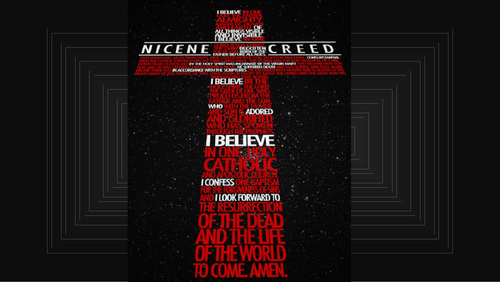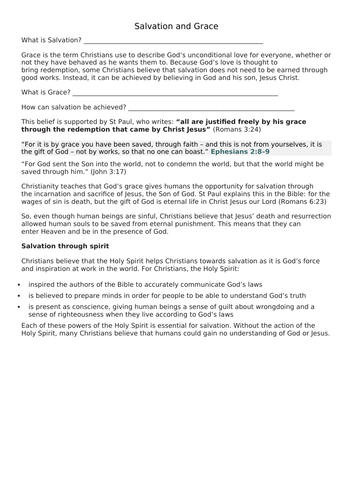
47Uploads
10k+Views
12k+Downloads
All resources

GCSE Judaism - The Covenant of Abraham (2 Lessons)
The first lesson tells the story of Abraham - links to clips from YouTube. Class can then do put the story in order task. Lesson has ppt, starter, handouts, homework included.
The second lesson looks at evaluating the Covenant with Abraham - introducing how to evaluate a (d) part question - starter, handout, planning task, d part template and homework included. With lesson ppt as well.

Garden of Eden (Genesis)
A lesson that I use with year 7 as part of my Genesis Scheme of Work. The aim is to get students familiar with Genesis 2 as well as recap on Genesis 1. Recap what a Conservative Christian may believe about Genesis 1 (Literal view). Demonstrate an understanding of some of the truths from Genesis 1. Then read as a class or in small groups Genesis 2 using a script and complete a comprehension task. Although I use this with year 7, this could be used up to GCSE level with little adaptation.
Included - PPT to guide you through the lesson with task descriptions and feedback, a printable script of Genesis 2, tasks and a homework
Other Lessons in this scheme of work can be found on TES.
Genesis 1 - 6 Days of Creation
Interpretations of Genesis
3. The Garden of Eden THIS LESSON
The Fall of Adam and Eve
Noah’s Ark
Abraham
Moses
With more lessons to follow

Year 7 Introduction to RE (Full Lesson with homework task)
This lesson is aimed at year 7 students as an introduction to RE and why it is important to study. Its a nice simple starter lesson that all students find engaging! It also gives you a chance to get to know the students.
The lesson gives students a chance to think about what they have learned at primary school, come up with reasons about why you should student RE and evaluate the best and worst reasons for studying the subject. Along the way there is some extension questions to keep students engaged and focused.
Included - link to a clip, cut and stick sorting activity, homework task, ppt to guide you through the lesson with lesson outcomes, differentiation, task explanation.

Who is God? (Creation and Covenant)
This lesson includes a crossword starter and frayer models that begin to address the words revelation and God.
Intention is to cover…
What is ‘revelation’?
What is ‘God’?
What if we don’t understand God?
We started teaching the New Catholic RE Curriculum Directory in 2022. So this lesson is based on the draft and my Department Leads interpretation of what we needed to include in each lesson.
There is a lot (too much) packed into the lesson, but it is a good introduction to revelation, God and the characteristics of God and what the Catholic Church teaches about not understanding God.

What happened at Creation? (Creation & Covenant)
Before I do this lesson, I would usually have done a lesson on Genesis 1 and made a story board.
This lesson covers:
How did God make the world?
Who were the first humans?
What was the first sin?
There is a draw the line starter, a reading task, a plenary.
We started teaching the New Catholic RE Curriculum Directory in 2022. So this lesson is based on the draft and my Department Leads interpretation of what we needed to include in each lesson.
It includes starter, recap tasks, a reading tasks and plenary.

What does Genesis 2 and 3 teach us about humans?
This lesson covers:
Why are humans different from animals?
Why are humans a bit like God?
Why is every human special?
We started teaching the New Catholic RE Curriculum Directory in 2022. So this lesson is based on the draft and my Department Leads interpretation of what we needed to include in each lesson.
Looks at imago dei, and human dignity. Starts to look at whether we are good stewards?

8.2 Prophecy and Promise: How are the prophetic texts reflected during Advent? (Lesson 9)
Lesson to fit the new Religious Education Curriculum Directory “To know you more clearly”
**** 8.2 Prophecy and Promise****
This lesson focuses on:
What do the Messianic prophecies promise?
What is the ‘O’ Antiphons?
How does the Church reflects on the importance of the prophetic texts during Advent?
This is lesson 9 of the following scheme of work, which contains 12 lessons, although some lessons would span 2 hours. (This curriculum was designed before the text book was out but covers the directory requirements)
Whole Scheme of work: £38.70 – 10% Discount
Lesson 1: What is the pattern of prophecy followed in the Bible? £4.00
Lesson 2: Why is the prophet Amos called by God? FREE
Lesson 3: Do the cries of Amos have any relevance today? £3.50
Lesson 4: How is the pattern of prophecy concluded in John the Baptist? £3.50
Lesson 5: Why do the prophetic texts point to Christ? £4.00
Lesson 6: How does Baptism allow us to share in Christ’s threefold office of priest, prophet and king? £4.00
Lesson 7: Martin Luther King £4.00
Lesson 8: Can you only speak with a prophetic voice if you are Christian? £4.00
Lesson 9: How are the prophetic texts reflected during Advent? £4.00
Lesson 10: Creating a Jesse Tree £4.50
Lesson 11: Advent Traditions £4.00
Lesson 12: End of Unit/Amnesty International Write for Rights. £3.50

8.2 Prophecy and Promise: Can you only speak with a prophetic voice if you are Christian? (Lesson 8)
Lesson to fit the new Religious Education Curriculum Directory “To know you more clearly”
**** 8.2 Prophecy and Promise****
This lesson focuses on:
What does it mean to speak in a prophetic voice?
Consider whether you can only speak in a prophetic voice if you are Christian.
Evaluate the truth of the lesson title.
This is lesson 8 of the following scheme of work, which contains 12 lessons, although some lessons would span 2 hours. (This curriculum was designed before the text book was out but covers the directory requirements)
Whole Scheme of work: £38.70 – 10% Discount
Lesson 1: What is the pattern of prophecy followed in the Bible? £4.00
Lesson 2: Why is the prophet Amos called by God? FREE
Lesson 3: Do the cries of Amos have any relevance today? £3.50
Lesson 4: How is the pattern of prophecy concluded in John the Baptist? £3.50
Lesson 5: Why do the prophetic texts point to Christ? £4.00
Lesson 6: How does Baptism allow us to share in Christ’s threefold office of priest, prophet and king? £4.00
Lesson 7: Martin Luther King £4.00
Lesson 8: Can you only speak with a prophetic voice if you are Christian? £4.00
Lesson 9: How are the prophetic texts reflected during Advent? £4.00
Lesson 10: Creating a Jesse Tree £4.50
Lesson 11: Advent Traditions £4.00
Lesson 12: End of Unit/Amnesty International Write for Rights. £3.50

GCSE RS The Development of the Trinity
Learning Intentions
What is the history behind the belief in the Trinity?
How did the Trinity develop over time?
What is the Nicene Creed?
Is the belief in the Trinity important?
Lesson with printable resources

EDEXCEL GCSE RS Imago Dei
Learning Intentions:
What do the words dominion and stewardship mean?
What is the translation of Imago Dei?
What does Imago Dei mean?
What evidence is there to support the belief?
What are the divergent views?

EDEXCEL GCSE RS Incarnation
Learning Intentions:
What does the word Incarnation mean?
What are Christian beliefs about Incarnation?
What does the Bible say about Incarnation?
Why is Incarnation important?
Full lesson including printable resources

EDEXCEL GCSE RS The Last Days of Jesus
Learning Intentions:
What happened according to the Gospels at the Last Supper, Arrest, Trial and Suffering Of Jesus?
What happened according to the Gospels at the Crucifixion, Resurrection and Acension?

What do Christians believe happen when you die?
Learning Intentions:
What are the relevant keywords to the topic of life after death?
What are the divergent Christian views about what happens after you die?
What did Jesus have to say about life after death?
Why is the belief in life after death important?

What is Salvation and Grace?
Learning Intentions:
What is Salvation?
What is Grace?
Why is it important?
Bundle

Catholic Beliefs and Teachings in 9 Lessons
This year I found myself in a position where I was told I had to get through Catholic Beliefs and Teachings in 8 Lessons. I didn’t manage this, but did do it in 9!
I was given a new PPT template design to use (building blocks - which I’m not entirely sure I’m sold on these yet), lesson titles and what should be included and these lessons are the result. Most of the specification is covered.
There are lots of tasks and printable resources, either from the PowerPoint or Worksheets. As planning I had to think, ‘how do I get the students the information, in as little time as possible?’
I hope nobody ever finds themselves in this position, however if you do, these resources could help! Or at the very least, some of the tasks!
They would work nicely for revision as well.
This was planned for a middle/low ability group.
Hope you find these lessons useful!
I thought them in this order:
-Trinity
-The Development of the Trinity
Creation
Imago Dei
Incarnation
The Last Days of Jesus
Is the Paschal Mystery Important?
What is Salvation and Grace
What do Christians believe happen when you die?

NEW EDEXCEL GCSE 60 Catholic Christianity Keyword Revision Cards (15 for each topic)
This revision resource can be used in class or can be given to students to make into revision cards.
Sets of cards can be printed on different coloured card, cut out and stuck back-to-back with keyword one side, definition the other.
Alternative if you like to play ‘I have the answer’ with a class you make these cards so that a student reads out the keyword (or definition depending on how you like to play) and another student responds if they think they have the definition on a different card - this takes a little planning to ensure that you choose a path through the keywords that covers all but its good fun.

GCSE Judaism - Messiah & Messianic Age (2 Lessons)
Two lessons are included here. One focused around the Messiah and then the Messianic Age. You could combine resources perhaps and put it into one lesson. There is a starter, worksheets and handouts.
There is a starter activity but its quite time consuming so I would only do part of it

GCSE Judaism Beliefs - The Nature of the Almighty (2 Lessons)
Lesson for the Almighty includes a keyword test, information about characteristics of the almighty, draw the line task and a template to complete the © part question.
This lesson includes a keyword test which I told students to revise for homework in a previous lesson. In this previous lesson I got students to decorate their new exercise book and back it before discussing the keywords and setting the homework - I’ve added these resources too (ppt, keywords to decorate, homework)
Finally in a third lesson I went into a little more detail with Jewish Beliefs about the Almighty and did a rotation task and students were asked to fill in a sheet. This ppt, worksheet and rotation information is included.
Hope you find it useful.
We do Edexcel Exam but it could be useful for other examboards.

GCSE Judaism - Shekhinah (2 Lessons)
First lesson introduces tests knowledge from the previous lesson, the idea of Shekhinah and includes a task to search for quotes in the Torah (I used a class set of Bibles).
The second lesson starts by looking at divergent views within Judaism - introducing Liberal/Reform and Orthodox views. As well as introducing Maimonides as a source of Wisdom and Authority. This then links to different views about the Shekhinah.

Moses - Genesis
A lesson that I use with year 7 as part of my Genesis Scheme of Work. The aim is to get students familiar with the story of Moses from the Bible. The PPT includes a family tree that links Abraham (from the previous lesson) to the Hebrews in Egypt. Students should be able to describe important events from Moses life and learn the 10 commandments. Although I use this with year 7, this could be used up to GCSE level with little adaptation.
Included - PPT to guide you through the lesson, starter activity recapping previous lesson (Abraham), links to a clip of the story of Moses, creative booklet task with differentiated options available and a card game. Card game with need to be prepared in advance for the lesson.
Other Lessons in this scheme of work can be found on TES.
Genesis 1 - 6 Days of Creation
Interpretations of Genesis
The Garden of Eden
The Fall of Adam and Eve
Noah’s Ark
The Covenant with Abraham
7. Moses - THIS LESSON
More lessons to follow.




